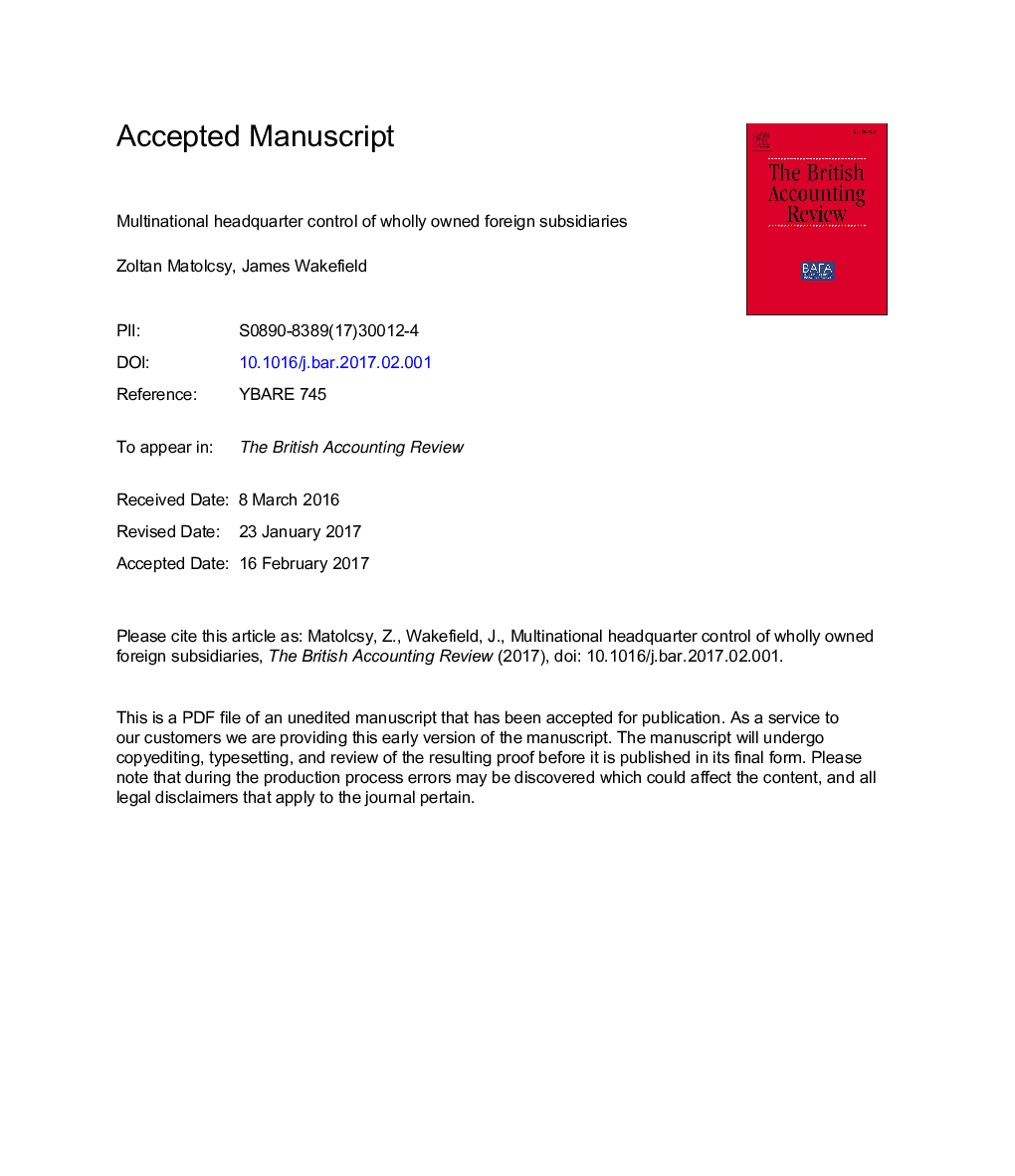| Article ID | Journal | Published Year | Pages | File Type |
|---|---|---|---|---|
| 5107507 | The British Accounting Review | 2017 | 60 Pages |
Abstract
This paper examines how contingent factors, important for wholly owned foreign subsidiary operation, affect the management control system exercised by multinational corporation headquarters. We focus on two sets of contingent factors: first, strategic factors relating to corporate and competitive strategy; and second, factors related to integration internal and external to a multinational corporation. We apply a control archetype approach to more comprehensively consider the controls exercised, relative to extant literature. Our evidence is based on data from a cross-sectional survey completed by 159 Australian multinational corporation headquarters. Our findings indicate activity sharing corporate strategies, low cost competitive strategies, and higher internal integration, lead to greater degrees of control of wholly owned foreign subsidiaries. Differentiation based competitive strategies and external integration have less substantial and narrower implications on the degree of control exercised. These findings are robust to sensitivity tests and are consistent with our expectations that headquarters exercise a higher degree of control in contexts perceived as less problematic.
Related Topics
Social Sciences and Humanities
Business, Management and Accounting
Accounting
Authors
Zoltan Matolcsy, James Wakefield,
